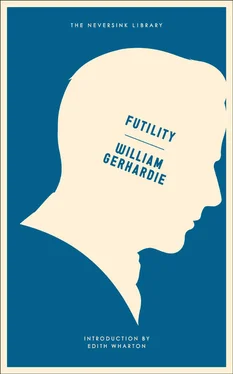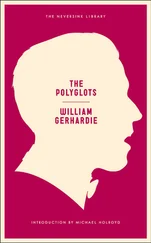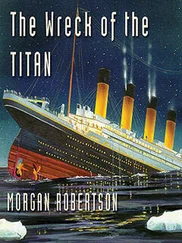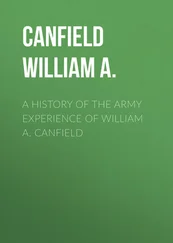Then she added:
“I know you. Nina has spoken of you. But there is one thing, Andrei — I don’t know your—”
“Andrei Andreiech.”
“There is one thing, Andrei Andreiech, that I want to know. Why, why can’t we put our heads together and decide something, help each other, instead of standing on our silly dignities? Heaven knows that we are in a muddle. Heaven knows that we have all of us sinned in our own small way, Andrei Andreiech. I came. I wanted to see her, to arrange things, to have it all out. I want to marry and leave them. I want Nikolai to give me a divorce. Then I will leave them alone. They can all do just as they please. I bear no one any malice. I came, and I was not admitted.… Into my own house, my own flat. It was my flat, Andrei Andreiech. I chose it. I bought the things and arranged them. There isn’t a single thing in here that wasn’t mine. When all is said and done, they are my children, Andrei Andreiech. And I have to wait outside like some low hawker — a tatarin —on the landing … not admitted.…” She was about to sob again, but then thought better of it and replaced her handkerchief.
“But, Andrei Andreiech, to send my own daughter to me to Moscow as a kind of emissary to ask me on no account to grant Nikolai Vasilievich a divorce, so that he should be unable to marry again — I call that low, low.… All this time she has wanted a divorce — reproached me, in fact, for standing in the way. What has it to do with me? If Nikolai really wanted a divorce, how could I have prevented him from getting it?”
“He would lose the children,” I explained.
“Why should he lose the children?” she asked.
“It’s the Russian law.”
Magda Nikolaevna laughed. “Are you a law student?”
“No.”
“I thought not.”
“Why?”
She laughed again. She had, I noticed, a very wicked laugh.
“Andrei Andreiech, you are very, very young, and believe everything you hear. If I am in the wrong and he is in the right, is it likely, I ask you, that under any conceivable law Nikolai should lose the children? It is the one who is in the wrong that loses the children. If Nikolai does not want a divorce because he does not want to lose the children, he knows that he is in the wrong.”
“So you think that is the reason he doesn’t want a divorce?” I said, and then added, “Of course I knew that.”
“Ah, but you didn’t know why he would lose the children by a divorce. If you are logical you must admit that it is so. It’s either so, or—”
“Or?”
“Or Nikolai simply did not want a divorce.”
“Why?”
“Perhaps he didn’t want it.” She shrugged her shoulders and laughed wickedly. “You see, you can’t have it both ways. Either he didn’t want a divorce because he didn’t want to lose the children, in which case he obviously admits that he is in the wrong. Or,” she laughed wickedly, “he merely says so to Fanny Ivanovna, who is stupid and knows no better, because he does not want a divorce … so as not to marry her.”
“But he does want a divorce,” I said.
“Now,” said Magda Nikolaevna. “I suppose you know why he wants it now?”
I nodded, and she nodded in answer — I thought rather significantly. I remembered that it had always been her wish to read for the Bar, but her own life had been too busy and complicated by legal proceedings to admit of the leisure necessary for the pursuit of her hobby.
“You know only half the story, young man,” she said. “You know, for instance, that I ran away with Eisenstein. But you don’t know why I ran away with Eisenstein.”
“I am sure I don’t want to,” I said, “if that is not being very rude.”
“Half-truths are more dangerous than lies,” said she. Here the porter returned with a cab.
She searched in her little bag for a coin, but I anticipated her.
“But you must,” she said. And dragging me after her under the raised hood of the cab and seated therein comfortably she was about to begin a long story, but suddenly checked herself.
“It’s rather absurd,” she said and then laughed softly, which for the moment made her seem to me again curiously like Nina, “that I should be telling you why I ran away with Eisenstein at a time when I ought to be telling you why I have just run away from him.”
“I am going to marry,” she said.
“Yes?”
“An Austrian, Čečedek. Do you know him?”
“No.”
“Andrei Andreiech,” she said suddenly, as we sat under the dripping roof, bouncing softly over the cobble-stones, “why don’t you go in for law? It’s so interesting.”
And glad of a change of subject I told her why I did not propose to read law. But as we turned on to the Liteiny and began ascending the convex bridge, she bent eagerly towards me and told me in great detail why she had run away with Eisenstein and why she was now running away from him.
IX
IT WAS A DAY, I REMEMBER, OF A PECULIAR warmth and fragrance, when you could feel that winter has become spring. I was strolling down the Nevski, and upon the wide, lighted splendour of this queen of streets I ran into Nikolai Vasilievich, with a pretty flapper on his arm.
“Andrei Andreiech!”
“Nikolai Vasilievich!”
And we shook hands warmly.
“May I introduce?”
And I was introduced.
I could hardly recognize him. His careworn look seemed to have deserted him in his dissipation, as if ashamed to accompany him thither. He seemed ten years younger in her presence. He was smarter, bore himself better, seemed actually taller, bigger.… Oh, was it at all the same Nikolai Vasilievich who wrangled so furiously with Fanny Ivanovna? This Nikolai Vasilievich was as happy as a schoolboy. But before we had walked ten yards Nikolai Vasilievich was already expatiating on his unhappy family affairs. “Well, well!” he sighed. He rather liked to sigh over his sins; indeed it appeared that his distressing family burdens formed the sole subject of his conversation with this engaging flapper.
“I keep telling Nikolai,” said Zina, “ ‘don’t marry me, don’t. It is superfluous. I love you so much that I am perfectly prepared to live with you … just to show you how I really love you.’ What is marriage? A piece of paper. It’s absurd. It means nothing. What do we care? What do I care? I have been reading Verbitskaya’s Springs of Happiness . She seems to agree with me.”
“No,” said her noble lover, “I wouldn’t think of taking advantage of your innocence. Verbitskaya is a fool. It would break your people’s hearts.”
“You are breaking your own people’s hearts, Nikolai Vasilievich,” I ventured.
“Exactly,” rejoined Nick. (He hardly looked old enough to warrant the dignity of “Nikolai Vasilievich.”) “I have broken enough hearts. I don’t want to break any more. I’ve had enough of this heart-breaking business, I can tell you. It is enough to break your own.”
“Your Oscar Wilde,” Zina turned to me, “said that hearts were made to be broken.”
“He also said,” I retorted, “that ‘We all kill the thing we love,’ and, in fact, a few other expensive things of that sort. But it is no reason, I assure you, why you should break anybody’s heart.”
“Exactly,” said Nicholas. “You think it very jolly to live together without being married, don’t you? But you just ask Fanny Ivanovna how she feels about it. No, my child, your Oscar Wilde is a fool.”
Quite automatically we turned into a cinema, the Parisiana in the Nevski, and witnessed the sort of stuff to which an uncomplaining public is still being treated every day and night all over the globe. When Nicholas left the box to get some chocolates Zina put her white-gloved hand on my arm. “I know,” she said, “Nikolai is being made to appear a blackguard by people who misunderstand his complex personality, but I am ready to give my life for him, Andrei Andreiech. Oh, you have no idea what a thoroughly good man he is when he is away from all those petty worries, those mean jealousies, those paltry domestic squabbles, those innumerable families all hanging round his neck, and he, alone, standing up against those legions, yes, legions of relatives and dependents and hangers-on. Oh, don’t laugh. I’m not excepting my own people. Oh, no! I am indeed ashamed, Andrei Andreiech, that it should be so. I had a dream last night. Shall I tell you what it was? It was Nikolai standing high upon a mountain peak, seeking to escape towards light and freedom and finding that he could not, because he was linked to the past. He tried to break the chains, but the past held him, clung to him, a monster with a thousand arms, like that picture in Gogol’s Terrible Vengeance . He found the past too strong for him.
Читать дальше












